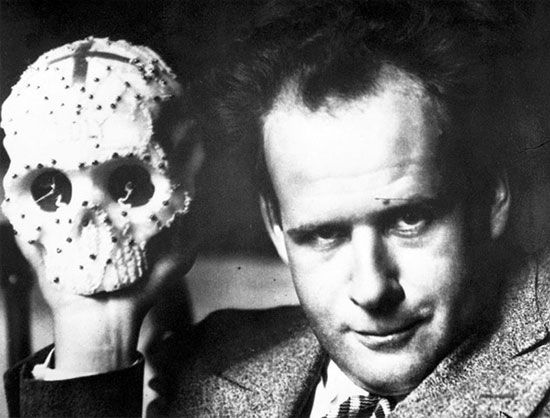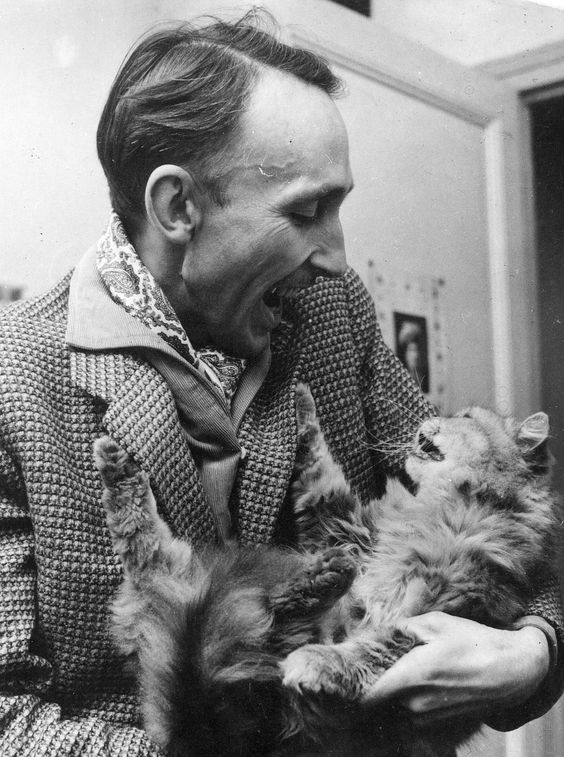I would like to believe that everybody else struggled with the readings as much as I did, so I will provide a brief summary of Eisenstein and Bazin’s respective ideas. It appears that Eisenstein’s main argument is that film is a dialectic process, where the conflict of ideas (shots) gives birth to new ideas/interpretation. Eisenstein refers to this production of ideas as “synthesis.” He especially applies his idea of shots clashing with one another to montage, where he argues that each shot should conflict with one another in a way that gives birth to new ideas. Evidently, Eisenstein places a lot of emphasis on the editing process in filmmaking. Bazin focuses more on the origin and goal of filmmaking as opposed to one of the four elements of filmmaking; his main concern is with the recording and recreation of reality. Cinema, Bazin argues, was always an idea, even before the developments of technology that would have made it possible. This is due to humanity’s desire to record reality, which Bazin argues is still the main goal of cinema. The technological advances that have developed throughout the course of cinema’s history, such as sound and color, have all been towards realizing this goal. With this idea in mind, Bazin also goes on to discuss his objection towards cinema being a manipulation of reality, instead opting for a more literal representation of reality.

In Eisenstein and Bazin’s respective arguments, there is a lot I disagree with, but also a few ideas that I acknowledge. Eisenstein’s idea that conflicting shots lead to synthesis is a widely held belief; I personally cannot name a film that does not use this principle. However, I believe that he stretches this principle too far in regard to cinema. There is always a clash of ideas, images, motifs, and whatever else you can think of in cinema, but there are also moments where these things have to exist without the presence of an opposing factor as well. If any given thing is always presented in conjunction with an opposing factor, then the viewer cannot dwell on the given thing independently from its opposition. To me, this is especially concerning as it means that we are always interpreting the synthesis rather than the independent components, causing us to disregard traits unique to these components which may give way to different interpretation or reinforce the intended interpretation. One way to think of this is through an analogy of a chef and his ingredients: the most mindful chefs are aware of the specific effect each ingredient has on the cumulative taste of the dish. It is in the same vein that the most mindful viewers (and directors) should be aware of the nuances of each individual idea even before it is used to synthesize a new idea.

Bazin’s theory of the origin of cinema revolving around the desire to capture reality is what I consider another widely held belief. You have to look no further than the initial hysteria that surrounded the development of the first photographs and motion pictures–people really were going crazy about the capture of everyday things such as the Lumiere brother’s recording of a train arriving at a station. The excitement surrounding these captures of reality and strive towards making them increasingly vivid clearly establishes an innate desire to capture reality. Where Bazin starts to lose traction, at least in my opinion, is when he states that every advancement in cinema is towards reaching this goal and when he objects to cinema being an “illusion.” I simply just cannot believe in these ideas as they not only contradict what we are learning in class, but also because they go against what I believe cinema to be. Technological advancements in the each of the four elements of film (mise-en-scene, cinematography, editing, and sound) have undoubtedly made it easier for cinema to capture and recreate reality, however, we mostly see them used by directors to further manipulate an “illusion.” What sort of “reality” are directors aiming to “capture” when they blatantly alter things such as natural lighting to convey an idea or set an atmosphere? Filmmakers have the ability to capture reality, but they repeatedly choose not to, and that choice causes me to question the validity of Bazin’s claim. On a more personal level, Barzin’s objection of cinema as an “illusion” through manipulation does not make sense if we consider cinema as an art. All good art is not only entertaining or stimulating, but memorable as well. Nobody remembers bad art due to its lack in these areas. Extending this idea of “good and bad” art to cinema yields a corresponding sentiment: all good films indulge in manipulation of some sort. Even films that aim to capture the mundane manipulate colors or use symbols, just as the wildest fantasy films do the same. Honestly, I see nothing wrong with this–I am not upset that cinema manipulates reality due to one simple belief: cinema, like all art, is meant to be entertaining. Without the illusory elements employed in filmmaking, I do not think that we would find watching films very much fun nor would the director find making films meaningful. Keeping that in mind, I would like to pose a question that corresponds with Bazin’s ideas: are our everyday lived experiences–our “reality”–the pinnacle of cinema? If what Bazin says is true, then this statement should be as well.
Keep in mind that most of my post is based upon my beliefs, so feel free to challenge my ideas or Eisenstein’s or Bazin’s. I found these readings to be extremely complex and though-provoking (difficult too), and I wanted to share my humble opinion on these interesting ideas.